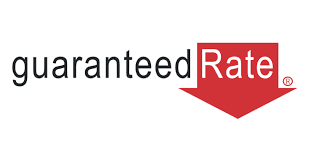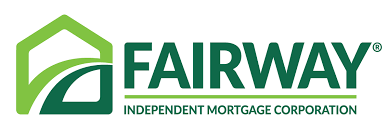Lender LendingTree rating and “best of” category Lender review


Refinance loansRead our review


VA loansRead our review


Jumbo loansRead our review


Online mortgage experienceRead our review


FHA loansRead our review


Home equity loansRead our review


Mortgage loan varietyRead our review
![]() Learn more about how we chose our list of the best mortgage lenders.
Learn more about how we chose our list of the best mortgage lenders.
Virginia, like most states, has regulations and rules for home sales and protecting the rights of buyers. If you’re planning to buy a home in the state, be aware of the following in particular:
Property disclosure
In Virginia, the law requires only minimal property disclosures from sellers. Sellers are required to sign a “buyer beware” form that allows them to avoid disclosing information about the condition of the home or improvements, as well as anything that pertains to adjacent parcels, historic district ordinances, nearby resource protection areas, sexual offenders and the presence of stormwater basins and wastewater systems. Sellers are also allowed to avoid disclosing any knowledge of special flood hazard areas, conservation measures or other easements, and whether the property is subject to community development measures.
In Virginia, the Residential Property Disclosure Act, does require sellers to provide some information to prospective buyers that might affect a purchase decision. It requires sellers to disclose the presence of defective drywall within the home, nearby military air installations, pending building or zoning violations, tourism initiatives in the area and whether the drug methamphetamine was ever manufactured on the home’s site.
Judicial and non-judicial foreclosure state
Virginia allows for non-judicial foreclosures, meaning the process doesn’t have to take place in the courts.
In a non-judicial foreclosure, the sale of the property is handled outside the courtroom. The multi-step process requires the lender to post public notice of an impending foreclosure sale — and then give the homeowner a chance to respond before auctioning the home. In Virginia, homeowners, by law, are allowed 14 days from the time they receive a foreclosure notice to catch up on missed mortgage payments.
Equitable distribution state
Virginia is an equitable distribution state, which means marital property is required to be divided fairly and equitably in a divorce. In Virginia, courts take into account factors such as the monetary contributions each spouse brought to the marriage, the health of each party and the tax consequences of splitting up certain assets and debts.
This is different from a community property state, where a couple’s assets and debts are required to be split 50/50. Still, in Virginia, courts are required to divide up a couple’s property according to whether it’s marital or separate property. The property may also be part-marital and part-separate; for example when a mortgage is in both names and is paid off with marital funds but at least some of the purchase was funded with assets held separately by one spouse.
Escrow state
Virginia is an escrow state, which means a buyer is not required to have an attorney present at closing. Instead, buyers and sellers can decide on an appropriate closing agent, which can include a state-licensed attorney, a title insurance company, a real estate broker licensed by the Virginia Real Estate Board or a financial institution authorized by law to do business in the state. Virginia doesn’t allow closings to be handled by anyone who might have been part of a home purchase or sale. This includes the buyer, seller, lender and borrower.
Whenever property is sold, states and local municipalities usually require either buyers or sellers to pay transfer taxes. In Virginia, the state imposes a recordation tax, now equal to 25 cents for every $100 of the transaction. Any city or county may also impose a recordation tax equal to one-third of the state’s fee. Finally, Virginia code imposes a grantor’s tax of 50 cents for every $500 of the transaction.
According to Tax-Rates.org, the median property tax in Virginia is now $1,862 per year, which means the state ranks 21st in the amount of property tax it collects. Still, some Virginia residents pay considerably more. For example, the median tax in Falls Church City outside Washington, D.C., is now $6,005, one of the highest such taxes in the U.S., according to Tax-Rates.org. By contrast, residents in Buchanan County in far western Virginia pay an average of just $284 per year.
By law, any city, county or town in Virginia can decide if it wants to offer a property tax exemption for elderly or disabled residents. Statewide, Virginia offers an exemption program for certain veterans and surviving spouses. To learn more, go here.
In most Virginia counties, the maximum conforming loan limit is now $484,350 for a single-family loan, the standard amount that applies to most of the U.S. Because of the high expense of local housing, some counties, such as Fairfax, Fredericksburg and Prince William, now have a $726,525 loan limit. As with other states, you can expect a higher limit in Virginia if you buy a multifamily home.
Two government-sponsored entities, Fannie Mae and Freddie Mac, buy conforming loans from lenders as a way to make the mortgage market safer and more affordable.
Conforming loan limits determine the maximum amount you may be able to borrow in your area for a mortgage and still receive a good interest rate, especially if you have strong credit. If you plan to buy a home that costs more than the limit, you’ll need to take on a jumbo loan, where the rate is often higher.

The Virginia Housing Development Authority (VHDA) offers a broad variety of programs that can help Virginia residents receive more affordable mortgages and possibly pay for down payments or closing costs. Depending on the county where you live, loan limits range from $251,900 to $500,000. Income limits also apply and depend on the size of your household and the combination of homebuyer programs you decide to use.
The following VHDA programs are worth noting in particular:
This program provides a 30-year, fixed-rate loan to homebuyers for purchasing property with as little as 3% down, or 0.5% to 1% down with a VHDA down payment assistance grant. Those who qualify may also get reduced mortgage insurance payments. The loan can be paired with the VHDA Plus Second Mortgage or the mortgage credit certificate.
Eligibility requirements:
VHDA offers a similar loan program that requires no mortgage insurance payment at all: Fannie Mae 97% No Mortgage Insurance. To qualify, you’ll need a higher credit score, 660 or more.
This grant is good for 2% to 2.5% of the purchase price of your new home, and it’s meant to be used with a VHDA mortgage. Because it’s a grant, you don’t need to pay it back. You can also combine this program with VHDA’s mortgage credit certificate.
Eligibility requirements:
This grant provides qualified buyers closing cost assistance for up to 2% of a home’s purchase price and never needs to be paid back. It can also be paired with a VHDA mortgage credit certificate.
Eligibility requirements:
This program may help you avoid down payment costs entirely by pairing a VHDA first mortgage with a second mortgage based on 3% to 5% of the purchase price of your home. The second mortgage can also be paired with a VHDA mortgage credit certificate.
Eligibility requirements:
This certificate offers a chance to reduce your monthly mortgage payments by receiving a federal tax credit for up to 20% of the mortgage interest you pay. The credit is good as long as you continue to live in the home. You can pair this program with the VHDA Plus Second Mortgage program or the down payment assistance grant.
Eligibility requirements:
Array ( )latestMaxDatecustomModifiedDatePublished date2017-07-19T15:20:19-04:00